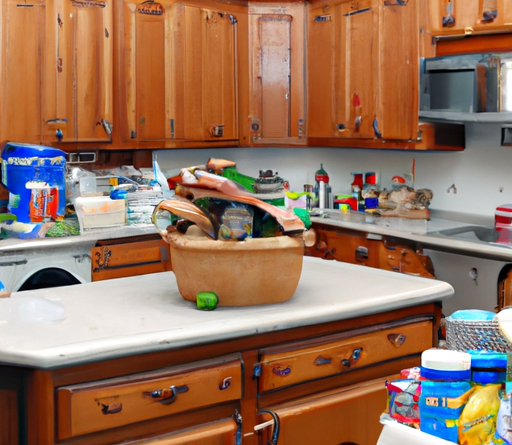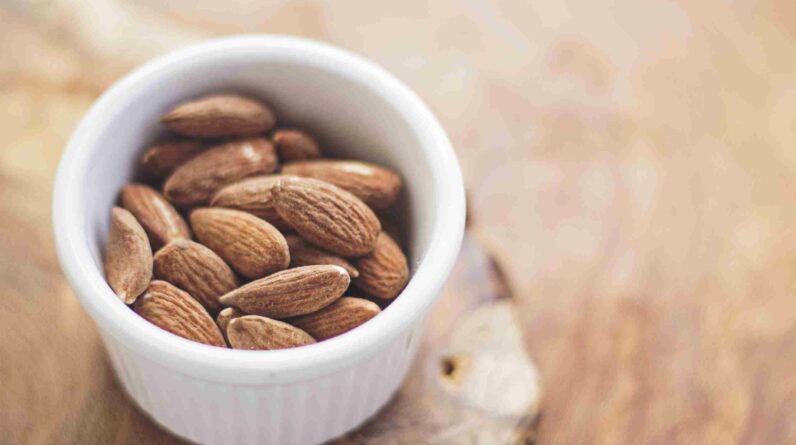In the world of food storage, the battle between glass containers and plastic containers has been ongoing for quite some time. We often find ourselves pondering over which option is truly superior. In this article, we aim to explore the advantages of glass containers, their impact on the environment, and their ability to keep our food fresh and healthy. So, let’s embark on this fascinating journey of discovering whether glass containers truly reign supreme in the realm of food storage.

Environmental Impact
Recyclability of glass containers
Glass containers are known for their high recyclability, making them a favorable choice for eco-conscious individuals. Glass can be recycled indefinitely without losing its quality or purity, making it a sustainable option. Furthermore, the recycling process for glass requires less energy compared to producing new glass from raw materials. This reduces the demand for natural resources and helps decrease the overall environmental impact.
Recyclability of plastic containers
Although plastic containers can be recycled, their recyclability rate is significantly lower than that of glass. The recycling process for plastic involves melting it down, which can result in a loss of quality and a decrease in the overall recyclability of the material. Additionally, not all types of plastic are accepted for recycling, leading to a considerable amount of plastic waste ending up in landfills or oceans.
Impact of production on the environment
The production of glass containers typically involves the extraction of raw materials such as sand and soda ash. While these materials are abundant, the extraction process can cause habitat destruction and contribute to air and water pollution. On the other hand, the production of plastic containers requires the extraction of fossil fuels, depleting finite resources and releasing greenhouse gases into the atmosphere. Considering these factors, glass containers have a lower environmental impact during the production phase compared to plastic containers.
Biodegradability
One key advantage of glass containers is their biodegradability. Unlike plastic, which can take hundreds of years to decompose, glass can naturally break down over time without leaving behind harmful microplastics. This makes glass a more sustainable choice as it reduces the long-term impact on the environment. Additionally, glass containers can be safely reused or recycled, further promoting their eco-friendly nature.
Health Considerations
Chemicals leaching into food from plastic containers
Plastic containers, especially those made from low-quality or questionable materials, have the potential to leach harmful chemicals into the food stored in them. These chemicals, such as phthalates and BPA, have been linked to various health concerns, including hormonal imbalances, reproductive issues, and certain types of cancer. This health risk associated with plastic containers makes them a less favorable option for storing food.
Bisphenol A (BPA) and its effects on health
Bisphenol A (BPA) is a chemical commonly found in plastic products, including food containers. BPA has been shown to mimic the hormone estrogen in the body, leading to disruptions in the endocrine system. Research has linked BPA exposure to a range of adverse health effects, including developmental disorders, obesity, and cardiovascular diseases. Due to these potential health risks, it is advisable to opt for BPA-free alternatives, such as glass containers.
Glass as a non-toxic option
Glass containers have the advantage of being non-toxic and non-reactive to food substances. Unlike plastic containers, glass does not release any harmful chemicals or alter the taste or quality of the stored food. This makes glass a safe and reliable choice for individuals concerned about their health and the potential risks associated with plastic.
Odor and stain retention in plastic containers
Plastic containers are notorious for retaining odors and stains, especially when used for storing strongly flavored or colored foods. Even after thorough cleaning, the lingering odors and discoloration can transfer onto new food items, affecting their quality and taste. Glass containers, on the other hand, do not absorb odors or stain easily, ensuring the integrity and freshness of the stored food.
Durability and Longevity
Resistance to wear and tear
Glass containers are renowned for their durability and ability to withstand wear and tear. They are less susceptible to scratches, cracks, and general wear, ensuring a longer lifespan compared to plastic containers. This durability allows glass containers to be repeatedly used without the risk of degradation, saving money and reducing waste in the long run.
Impact resistance
Another advantage of glass containers is their high impact resistance. Unlike plastic containers, glass is less likely to crack or break when accidentally dropped or subjected to sudden impacts. This factor not only contributes to their longevity but also eliminates the safety concerns associated with shattered plastic containers, thus providing peace of mind for users.
Long-term storage potential
Glass containers excel in long-term storage due to their ability to maintain the quality and freshness of the stored food. The non-porous nature of glass prevents air and moisture from entering, effectively preserving the food’s flavor, texture, and nutritional value. Plastic containers, on the other hand, are more prone to allowing air and moisture infiltration, leading to faster food spoilage.
Scratch resistance
Glass containers are highly scratch-resistant, allowing them to maintain their clear and transparent appearance even after prolonged use. Plastic containers, especially those made from lower-quality materials, are more susceptible to scratching, which can create breeding grounds for bacteria and compromise the visual appeal of the stored food. The scratch resistance of glass containers makes them a reliable choice for maintaining hygiene standards.
Storage Efficiency
Stackability of glass containers
Glass containers often come with a rectangular or square shape, which makes them easy to stack and store efficiently. The consistent shape and size of glass containers allow users to maximize shelf space and organize their pantry or refrigerator more effectively. This stackability feature adds convenience to the storage process and ensures optimal space utilization.
Stackability of plastic containers
Plastic containers also offer stackability, but it can be more challenging to achieve due to their variety of shapes and sizes. The irregular shapes of plastic containers may lead to wasted space when stacking, reducing the overall storage efficiency. However, plastic containers with standardized shapes can also provide stackability benefits similar to glass containers.
Space utilization
Glass containers, with their consistent shape and stackability, allow for efficient use of storage space. Whether in a pantry, refrigerator, or cabinet, glass containers can be neatly arranged to maximize the available area, preventing clutter and ensuring easy access to stored items.
Portability
Plastic containers often have the advantage of being lightweight and portable, making them suitable for on-the-go use and outdoor activities. Glass containers, while heavier, offer their own portability benefits. Their robustness and resistance to impact make them suitable for travel, and they can be safely transported without the risk of spilling or leaking, ensuring the food’s quality is preserved throughout the journey.

Aesthetics and Visibility
Transparency and visibility of food
One clear advantage of glass containers is their transparency, allowing users to easily see the contents without opening the container. This visibility reduces the need for unnecessary handling and helps in identifying the stored food effortlessly. Plastic containers, especially opaque ones, offer limited visibility and require opening or labeling to determine the contents.
Appealing presentation
Glass containers enhance the presentation of stored food due to their elegant and timeless aesthetic. Whether used for meal prep, leftovers, or organizing ingredients, glass containers create an appealing visual display, especially when showcased on open shelves or during gatherings. The transparent nature of glass showcases the vibrant colors and textures of the food, elevating the overall dining experience.
Variety of options
When it comes to aesthetics and design, glass containers offer a wide variety of options to suit individual preferences. From classic and minimalist designs to vibrant and decorative patterns, glass containers can complement any kitchen decor or personal style. Plastic containers, while available in different colors and styles, often lack the timeless appeal and versatility offered by glass.
Suitability for serving
Glass containers can double as serving dishes, further adding to their aesthetic appeal. The elegant look of glass makes it ideal for special occasions or when presenting dishes to guests. Plastic containers, on the other hand, are primarily functional and may not lend the same level of sophistication in serving.
Cleaning and Maintenance
Ease of cleaning
Glass containers are easy to clean due to their smooth and non-porous surface. They can be safely washed in the dishwasher or by hand without the risk of retaining residual food particles or odors. Plastic containers, particularly those with textured surfaces or narrow openings, can be more challenging to clean thoroughly, potentially leading to bacterial growth.
Stain resistance
Glass containers have superior stain resistance compared to plastic. They are resistant to retaining the colors or odors of strongly pigmented or flavored foods, ensuring that subsequent uses do not result in cross-contamination or unwanted flavors. Plastic containers, especially those made from low-quality materials, may absorb stains and odors, making them less suitable for long-term use.
Odor retention
Due to their non-porous nature, glass containers do not retain odors from food stored in them. Even after washing, glass containers remain odor-free, ensuring the freshness and taste of subsequent food items. Plastic containers, especially those with a history of pungent or aromatic foods, can retain odors, affecting the quality of future stored items.
Dishwasher and microwave safety
Glass containers are typically safe for use in dishwashers and microwaves. Their heat resistance allows for convenient reheating or defrosting of food without the risk of melting or warping. Plastic containers, depending on their quality and specifications, may have limitations when exposed to high temperatures, potentially releasing harmful chemicals and compromising food safety.

Temperature Control
Glass as a better insulator
Glass containers have superior insulation properties compared to plastic containers. They can help retain heat or maintain cold temperatures, making them suitable for a wide range of food storage needs. Whether it’s keeping soup hot for hours or ensuring salad remains crisp in the refrigerator, glass containers excel at temperature control.
Heat resistance
Glass containers are highly heat resistant and can withstand high temperatures without warping or melting. This attribute makes them ideal for oven or stovetop use, allowing for convenient cooking, baking, and reheating directly in the container. Plastic containers, on the other hand, often have limitations in terms of heat resistance, which can restrict their usage in certain cooking methods.
Cold storage suitability
Glass containers are equally adept at cold storage, providing an excellent option for keeping perishable items fresh in the refrigerator or freezer. The insulation properties of glass help maintain low temperatures, reducing the risk of food spoilage and freezer burn. Plastic containers can also be used for cold storage, but they may not provide the same level of temperature control as glass.
Uniform heating and cooling
One benefit of glass containers is their ability to distribute heat or cold evenly throughout the stored food, ensuring uniform cooking or cooling. Plastic containers, especially those with uneven thicknesses or poor heat conductivity, may result in uneven heating or cooling, leading to inconsistent food quality.
Cost Effectiveness
Price comparison between glass and plastic containers
When comparing the initial purchase price, plastic containers generally have a lower price point than glass containers. Plastic containers are mass-produced and have lower production costs, making them more affordable for consumers. On the other hand, glass containers, while initially more expensive, offer long-term durability and reusability, offsetting the initial investment.
Long-term value for money
Glass containers provide better long-term value for money due to their durability and longevity. While plastic containers may need to be replaced more frequently due to wear and tear, glass containers can last for years, reducing the need for constant repurchasing. By choosing glass containers, individuals can save money in the long run and avoid contributing to plastic waste.
Durability impact on cost
The durability of glass containers directly impacts their cost-effectiveness. With their resistance to scratches, cracks, and wear, glass containers can be used repeatedly without losing their functionality or aesthetic appeal. Plastic containers, on the other hand, can degrade over time, leading to the need for replacements and increased costs.
Reusability and cost savings
Glass containers offer the advantage of being reusable, reducing the reliance on single-use plastic containers. By investing in glass containers, individuals can save money and minimize waste generation. The reusability factor of glass containers contributes to their cost-effectiveness and promotes sustainability.
Convenience and Practicality
Visibility of contents
The transparency of glass containers allows for easy identification and visibility of the stored food contents. Whether it’s leftovers in the refrigerator or ingredients in the pantry, individuals can quickly locate what they need without needing to open multiple containers or rely on labeling.
Ease of identifying stored items
Glass containers, with their transparent nature, make it effortless to identify the stored items. This eliminates the need for guessing or searching through various containers, saving time and minimizing food waste. Plastic containers, especially opaque or colored ones, may require additional steps such as labeling to ensure quick and accurate identification.
Labeling options
Both glass and plastic containers offer the option of labeling to further facilitate organization. However, glass containers often have smoother surfaces, making labels adhere more effectively without the risk of peeling or becoming unreadable. Plastic containers, especially those with textured surfaces, may pose challenges in label adhesion and legibility.
Sustainability of lids and closures
When considering convenience and practicality, it’s essential to evaluate the sustainability of lids and closures. Both glass and plastic containers can have various types of lids, with plastic lids being more common due to their flexibility and ease of manufacture. However, glass containers also offer sustainable options such as bamboo or stainless steel lids, which further align with eco-friendly practices and reduce dependence on plastic.
Suitability for Different Food Types
Compatibility with acidic foods
Glass containers are highly compatible with acidic foods, such as tomatoes, citrus fruits, and vinegar-based dressings. Unlike plastic, glass does not react with acidic substances, ensuring the integrity and quality of the food remains unaffected. Plastic containers, especially those with lower-quality materials, may leach chemicals or absorb flavors when in contact with acidic foods.
Storing oily or fatty foods
Both glass and plastic containers can effectively store oily or fatty foods. However, glass containers have an advantage in maintaining the freshness and quality of these items over extended periods. Glass’s non-porous surface helps prevent rancidity and food spoilage, ensuring the stored oils or fats remain usable.
Effect on taste and odor
Glass containers have minimal impact on the taste and odor of the stored food. They do not absorb or transfer flavors, providing a clean and unadulterated experience. Plastic containers, especially those of lower quality, may impart a plastic-like taste or odor to the food, compromising its quality.
Preservation of freshness
Glass containers excel at preserving the freshness of stored food. The airtight seal provided by glass lids helps retain the natural properties of the food, including flavor, texture, and nutritional value. Plastic containers, while also capable of preserving freshness, may not offer the same level of airtightness, leading to faster food spoilage.
In conclusion, glass containers offer numerous advantages over plastic containers when it comes to environmental impact, health considerations, durability and longevity, storage efficiency, aesthetics and visibility, cleaning and maintenance, temperature control, cost-effectiveness, convenience and practicality, and suitability for different food types. From their recyclability, non-toxic nature, and long-term value for money to their transparency, stackability, and compatibility with various food types, glass containers emerge as a superior option for food storage. By choosing glass containers, we can make a positive impact on the environment, prioritize our health, and enhance the overall quality and experience of storing and consuming food.









